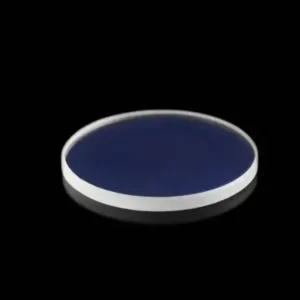Description
Shape Optics’ Lithium Fluoride (LiF) Windows are high-performance optical components designed to offer excellent transmission from the vacuum ultraviolet (VUV) to the infrared (IR) regions. These windows are ideal for applications requiring high transmission and a low refractive index, making them versatile for various optical and spectroscopy uses.
Properties and Uses
LiF windows are extensively used in spectroscopy applications due to their broad transmission range and excellent VUV transmission. They are also used as diffracting elements in X-ray spectrometry and as infrared windows for thermal imaging. LiF’s low index of refraction allows these windows to be used without anti-reflection coatings, simplifying their application and enhancing their performance.
General Specifications
- Material: Lithium Fluoride (LiF)
- Clear Aperture: 85%
- Coating: Uncoated
- Edges: Fine Ground
- Bevel: Protective as needed
- Type: Protective Window
Physical Properties
- Density: 2.64 g/cm³
- Young’s Modulus: 64.97 GPa
- Coefficient of Thermal Expansion (CTE): 37 x 10⁻⁶/°C
Mechanical Properties
- Knoop Hardness: 102 kg/mm²
- Poisson’s Ratio: 0.33
- Surface Flatness: 2λ @ 632.8nm
- Parallelism: < 3 arcmin
Chemical Properties
Lithium Fluoride is sensitive to thermal shock and can be attacked by atmospheric moisture at temperatures above 400°C. Proper handling and storage in dry conditions are essential to maintain their optical performance.
Optical Properties
- Index of Refraction: 1.392 @ 0.6μm
- Abbe Number (νd): 97.29
- Surface Quality: 60-40 scratch-dig
Transmission Wavelength Range
LiF windows provide high, flat transmission from 150 nm to 6 μm, covering both VUV and IR spectra. This broad wavelength range makes them suitable for various optical applications, ensuring consistent performance across the entire spectral range.
Shape Optics’ Lithium Fluoride (LiF) Windows are engineered to deliver superior optical performance across a wide spectral range. Their high transmission, low refractive index, and excellent VUV transmission make them ideal for a variety of optical applications, including spectroscopy and thermal imaging. Due to their sensitivity to thermal shock and atmospheric moisture, proper handling and storage are crucial to maintaining their performance.






